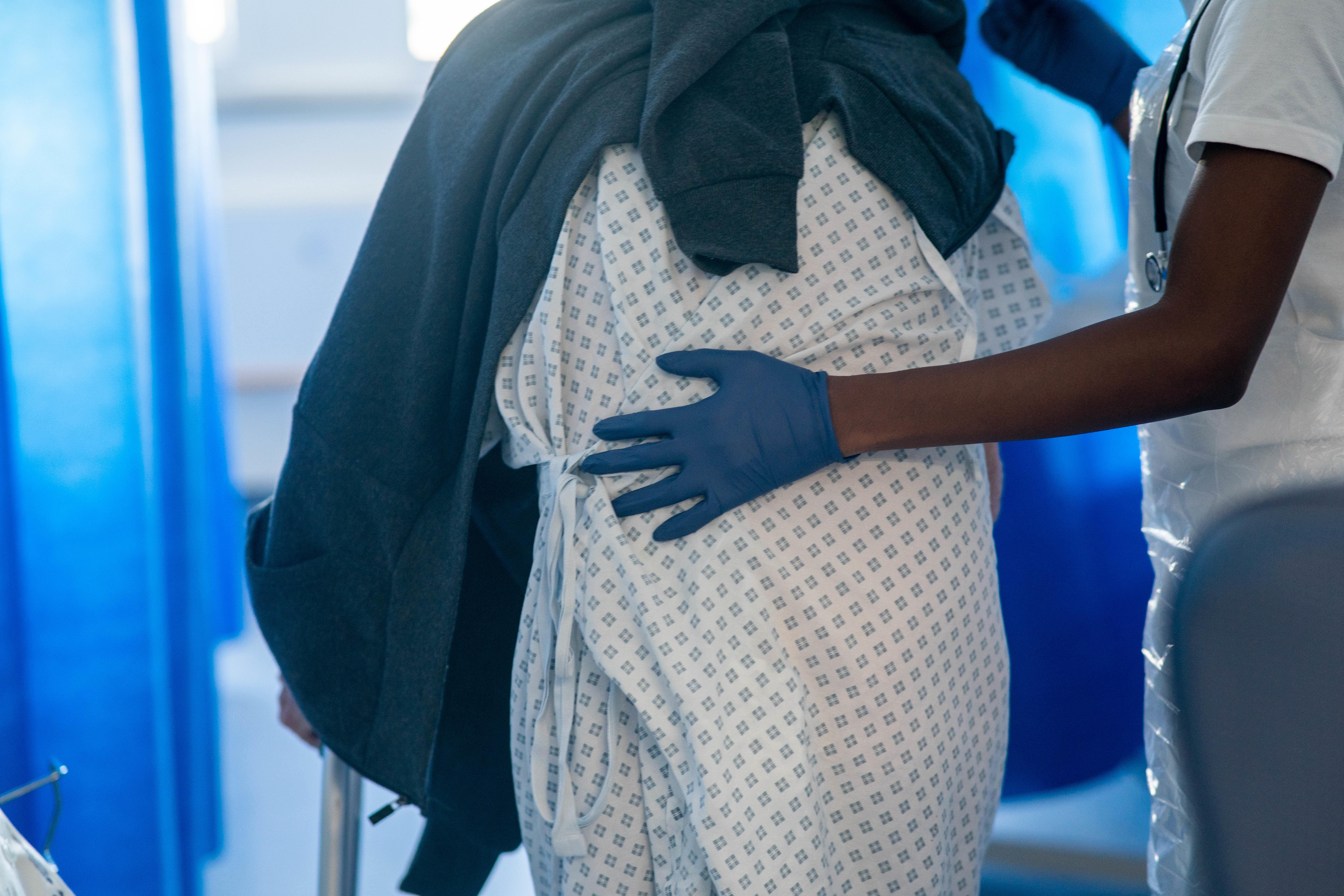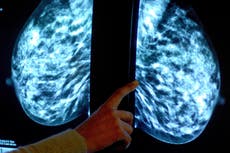More than 121,000 people died waiting for NHS treatment in 2022, Labour says
Figures obtained through freedom of information requests suggest record numbers of people are dying while waiting for care, Labour claimed

An estimated 121,000 patients died while waiting for NHS treatment in England last year, Labour has claimed.
Figures obtained through freedom of information requests suggest record numbers of people are “spending their final months in pain and agony” while in line for care, shadow health secretary Wes Streeting said.
Across the 35 acute trusts that responded with data, the total number of deaths stood at 30,611, according to Labour.
The party has extrapolated this data out to 138 trusts across the country to reach an estimated figure of 120,695.
At the Royal Free NHS Foundation Trust, more than 3,500 patients died waiting for treatment last year, according to the figures.
Nearly 3,000 people died while on waiting lists at University Hospitals of Morecambe Bay NHS Foundation Trust – 1,600 of which had been waiting longer than 18 weeks, the party said.
Under the NHS constitution, patients have a right to start treatment within 18 weeks of a referral.
Last year, a similar extrapolation suggested that 117,000 patients died while waiting for treatment in 2021, while the country was grappling with the Covid-19 pandemic.
Prime Minister Rishi Sunak has made cutting waiting lists one of the five key priorities for his leadership, but data published by NHS England shows around 7.6 million people were waiting to start treatment at the end of June – up from 7.5 million in May.
Strikes over long-running pay disputes across the health service have seen tens of thousands of appointments, operations and procedures postponed in recent months, according to NHS leaders, which the government has blamed for the backlog.
Record numbers of people are spending their final months in pain and agony, waiting for treatment that never arrives. The basic promise of the NHS - that it will be there for us when we need it – has been broken
Mr Streeting said: “Record numbers of people are spending their final months in pain and agony, waiting for treatment that never arrives. The basic promise of the NHS – that it will be there for us when we need it – has been broken.”
Meanwhile, separate research commissioned by the Liberal Democrats into the number of hospital beds in different areas of the country revealed what the party branded a “postcode lottery”.
House of Commons Library data analysis suggested Homerton University Hospital NHS Foundation Trust, for example, has just 0.9 beds per 1,000 people, the Lib Dems said.
During a visit on Thursday to Mid Bedfordshire, where parties are vying to snap up the seat of former culture secretary Nadine Dorries, deputy leader Daisy Cooper will highlight how Bedfordshire Hospitals NHS Foundation Trust has just 1.7 hospital beds per 1,000 people.
Ms Cooper said: “After the appalling scenes of people dying in the back of ambulances and being treated in corridors, you would have thought that ministers would have moved heaven and earth to massively increase bed capacity in hospitals this year.
“Instead, the Conservative government has continued to drive our NHS into the ground, leaving patients and NHS staff fearful that our health service is being set up for yet another difficult winter.”
This analysis, based on figures from just a quarter of hospital trusts, does not demonstrate a link between waits for elective treatment and deaths, and it would be misleading to suggest it does given the data does not include the cause of death, or any further details on the person's age and medical conditions
She added: “In Bedfordshire especially, people have been let down by a Conservative government that has run our NHS into the ground. At this upcoming by-election, it will be an opportunity to elect a hardworking local champion who will stand up for local health services and bring constituent’s issues right to the heart of Parliament.”
NHS England stressed Labour’s analysis did not demonstrate a link between waits and deaths and praised its staff for helping to bring down the backlog for elective care.
An NHS spokesperson said: “This analysis, based on figures from just a quarter of hospital trusts, does not demonstrate a link between waits for elective treatment and deaths, and it would be misleading to suggest it does give the data does not include the cause of death or any further details on the person’s age and medical conditions.
“The vast majority of the waiting list – about four in five patients – is seen and treated in an outpatient setting, rather than requiring inpatient admission, with the latest data showing more than one million patients were treated within 18 weeks in June.
“Our hardworking staff have made significant progress bringing down long waits for elective care, and nationally the NHS is working with the most challenged trusts to ensure patients continue to see reductions in waiting times right across the country, with patients who have been waiting the longest and those with the highest clinical need prioritised.”
A Royal Free London spokesperson said: “There is nothing to indicate that waiting for an elective procedure contributed to or caused the death of the patients captured in this data.
“A routine review of patients waiting longer than 18 weeks for treatment at the Royal Free London confirmed that none came to severe harm or died as a result of their wait.”
They added that “significant progress” had been “recently made” in reducing waiting times and that additional clinics and surgical lists are being run in the evenings and weekends so that patients are seen as soon as possible.
A Department of Health and Social Care spokesperson said: “The NHS is providing more care to patients without the need for an overnight admission where clinically appropriate, for instance by treating and discharging them on the same day or at home in virtual wards.
“Waiting times for urgent and emergency care have substantially reduced from the peak of winter pressures in December and the NHS is on track to deliver 5,000 permanent hospital beds for next winter as well as an extra 3,000 virtual ward beds to safely care for people from home, resulting in over 10,000 in total by autumn.
“Over the next two years, we are also investing £1.6 billion to support timely and safe discharge of people from hospital into the community.”



Bookmark popover
Removed from bookmarks